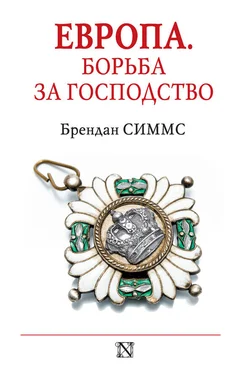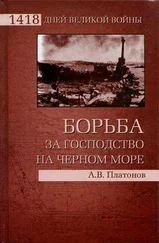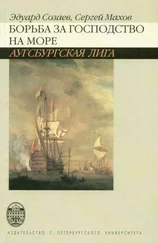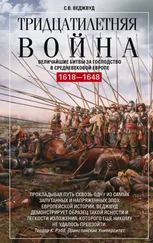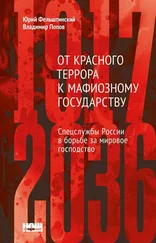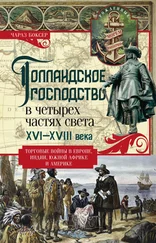Quoted in Brendan Simms, Three victories and a defeat. The rise and fall of the first British Empire, 1714–1783 (London, 2007), p. 32.
Annabel Patterson, The Long Parliament of Charles II (New Haven and London, 2008), pp. 178–208, especially pp. 179–80.
О важности «деволюционной войны» для отношения немцев к Людовику: Martin Wrede, Das Reich und seine Feinde: politische Feindbilder in der reichspatriotischen Publizistik zwischen Westfälischem Frieden und Siebenjährigem Krieg (Mainz, 2004), pp. 330–407.
Leonard Krieger, The German idea of freedom. History of a political tradition (Chicago and London, 1957), pp. 6, 19 and passim.
Quoted in Peter SchrÖder, ‘The constitution of the Holy Roman Empire after 1648: Samuel Pufendorf’s assessment in his Monzambano’, Historical Journal, 42 (1999), pp. 961–83 (quotation p. 970).
Wolfgang Burgdorf, Reichskonstitution und Nation. Verfassungsreformprojekte für das Heilige Römische Reich deutscher Nation im politischen Schrifttum von 1648 bis 1806 (Mainz, 1998), W. H. Pufendorf quotations pp. 70–73.
Sophus Reinert, Translating Empire. Emulation and the origins of political economy (Cambridge, Mass., 2011).
О Вестфальском мире, пиренейском мире и имперской политике Испании: Stanley H. Stein and Barbara H. Stein, Silver, trade and war. Spain and America in the making of Early Modern Europe (Baltimore and London, 2000), pp. 57–105.
Louvois’s remark of June 1684 is cited in Livet, ‘Louis XIV and the Germanies’.
Wouter Troost, ‘William III, Brandenburg, and the construction of the anti-French coalition, 1672–88’, in Jonathan Israel (ed.), The Anglo-Dutch moment. Essays on the Glorious Revolution and its world impact (Cambridge, 1991), pp. 299–333.
Quoted in G. Symcox, ‘Louis XIV and the outbreak of the Nine Years War’, in Ragnhild Hatton (ed.), Louis XIV in Europe (London, 1976), p. 187.
Quoted in John A. Lynn, The wars of Louis XIV, 1667–1714 (London and New York, 1999), p. 197.
Quotations in Claydon, Europe and the making of England, pp. 56 and 239.
Charles II is quoted in ibid., p. 237.
Tony Claydon, William III and the godly revolution (Cambridge, 1996), pp. 138–40 and passim.
Christopher Storrs, ‘The army of Lombardy and the resilience of Spanish power in Italy in the reign of Carlos II (1665–1700)’, in War in History, Part I, 4 (1997), pp. 371–97, and Part II, 5 (1998), pp. 1–22.
Quoted in Wout Troost, ‘Ireland’s role in the foreign policy of William III’, in Esther Mijers and David Onnekink (eds.), Rede ning William III. The impact of the King-Stadholder in international context (Aldershot, 2007), pp. 53–68 (quotation p. 53).
Quoted in Everth, Öffentlichkeit in der Aussenpolitik, p. 147.
Steve Pincus, 1688. The first modern revolution (New Haven and London, 2009), pp. 475–7 and passim.
David Stasavage, Public debt and the birth of the democratic state. France and Great Britain, 1688–1789 (Cambridge, 2003).
Philip J. Stern, The company-state. Corporate sovereignty and the Early Modern foundations of the British Empire in India (Oxford, 2011).
Robert D. McJimsey, ‘A country divided? English politics and the Nine Years’ War’, Albion, 23, 1 (1991), pp. 61–74.
Quoted in Miles Ogborn, ‘The capacities of the state: Charles Davenant and the management of the excise, 1683–1698’, Journal of Historical Geography, 24 (1998), pp. 289–312.
A. F. Upton, Charles XI and Swedish absolutism (Cambridge, 1998), pp. 71–89.
Peter H. Wilson, War, state and society in Württemberg, 1677–1793 (Cambridge, 1995), especially pp. 247–8.
Andre Wakefield, The disordered police state. German cameralism as science and practice (Chicago and London, 2009).
Owen Stanwood, ‘The Protestant moment: anti-popery, the Revolution of 1688–1689, and the making of an Anglo-American empire’, Journal of British Studies, 46 (2007), pp. 481–508 (quotations pp. 488, 491, 501 and 491).
Quoted in Christian Greiner, ‘Das “Schild des Reiches”. Markgraf Ludwig Wilhelm von Baden-Baden (1655–1707) und die “Reichsbarriere” am Oberrhein’, in Johannes Kunisch (ed.), Expansion und Gleichgewicht. Studien zur europäischen Mächtepolitik des ancien régime (Berlin, 1986), pp. 31–68 (quotation p. 47).
Французская колония в Северной Америке, занимала полуостров Новая Шотландия, территорию современной провинции Нью-Брансуик и ряд островов в океане . Примеч. ред.
Linda and Marsha Frey, A question of empire. Leopold I and the War of Spanish Succession, 1701–1705 (Boulder, 1983), pp. 15–17, 47 (quotation) and passim.
Peter Baumgart, ‘Die preussische Königskrönung von 1701, das Reich und die europäische Politik’, in Oswald Hauser (ed.), Preussen, Europa und das Reich (Cologne and Vienna, 1987), pp. 65–86, especially pp. 72–4.
The Admiralty instructions are quoted in Simms, Three victories, p. 50.
Quoted in Frey and Frey, Question of empire, p. 77.
Charles Spencer, Blenheim. Battle for Europe. How two men stopped the conquest of Europe (London, 2004).
Австрия установила в обоих княжествах суровые оккупационные порядки . Примеч. ред.
Martin Schulze-Wessel, Russlands Blick auf Preussen. Die polnische Frage in der Diplomatie und der politischen Öffentlichkeit des Zarenreiches und des Sowjetstaates, 1697–1947 (Stuttgart, 1995), pp. 35 and 37.
Andrew Rothstein, Peter the Great and Marlborough. Politics and diplomacy in converging wars (Basingstoke, 1986), p. 37.
Rothstein, Peter the Great and Marlborough, pp. 63 and 65–6.
Quoted in J. M. Dunn, ‘“Bright enough for all our purposes”. John Locke’s conception of a civilized society’, Notes and Records of the Royal Society London, 43 (1989), p. 134.
Michael Kwass, ‘A kingdom of taxpayers: state formation, privilege and political culture in eighteenth-century France’, Journal of Modern History, 70, 2 (1998), pp. 295–339, especially pp. 301 and 303.
Согласно документам, Военная коллегия основана в 1719 г . Примеч. ред.
Читать дальше
Конец ознакомительного отрывка
Купить книгу
